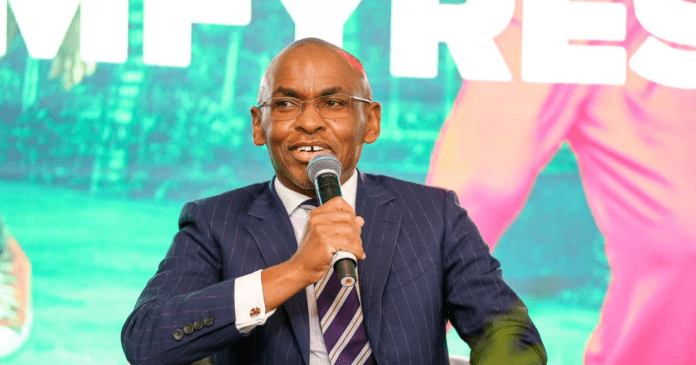Safaricom CEO Peter Ndegwa has revealed that the government is yet to pay the telco for work done under the Sh104.8 billion Universal Health Coverage (UHC) tender it was awarded in 2024.
Speaking during an interview with Citizen TV’s Yvonne Okwara, Ndegwa clarified the scope of Safaricom’s involvement in the UHC project and responded to concerns around the telco’s perceived role in surveillance and data sharing.
“As of now, we’ve not received a single cent. We’ve been working for almost a year,” he said.
He explained that payment is pegged on the completion of specific milestones, which must be verified by the Ministry of Health and the Social Health Authority (SHA) before funds are disbursed.
“Every provider has a defined scope. Once completed, we report back to the ministry, and the SHA or DHA verifies, then payment follows,” he explained.
What Safaricom is doing in UHC project
Ndegwa said Safaricom is focused purely on digitization, supplying infrastructure and devices to hospitals under the Integrated Healthcare Information Technology System (IHTS).
“UHC is a vast program. Our role is in the digitisation element. For example, when someone registers for SHA, that platform is ours. We ensure a smooth registration experience,” he clarified.
Under the contract, Safaricom is supplying tablets for healthcare workers, providing connectivity to hospitals across the country, including fiber, 4G, and powering the system that enables patient data to move seamlessly between facilities.
“When you walk into a hospital, the system identifies you. The hospital uses it to claim. Doctors can use our system directly. No more manual files.”
He said the full impact of the project will only be visible once hospitals are fully enabled, patients are empowered to use digital platforms, and all components of UHC are funded and functional.
“My personal view is that when the processes are fully digitised, when the hospitals are fully enabled, when the patients are fully empowered to use digital, it will be a fantastic system.”
Gen Z backlash and lessons learned
On the issue of trust, especially following accusations during the Gen Z protests that Safaricom may have enabled abductions through data sharing, Ndegwa said the company does not provide customer locations or share data with security agencies.
“We do not give out customer locations. We pride ourselves on delivering services that are secure and safe. You can’t run M-Pesa 365 days a year unless it’s built on a secure and reliable system,” he said.
He acknowledged the reputational hit Safaricom suffered and said the experience had become a moment of learning, for politics, corporations, and the company itself.
“A lot of the issues are around perception. But we take responsibility. Even if it’s perception, we take responsibility.”
Vision 2030: Becoming Africa’s leading tech firm
Ndegwa said Safaricom’s long-term goal is to become Africa’s leading purpose-led technology company by 2030. The company’s strategy involves empowering individuals and businesses through digital solutions.
“We have to make sure there’s ubiquitous internet coverage and solutions that allow people to use the internet in a way that lets them live their lives, including how they access services, how they shop, how they work, how they access government services.”








